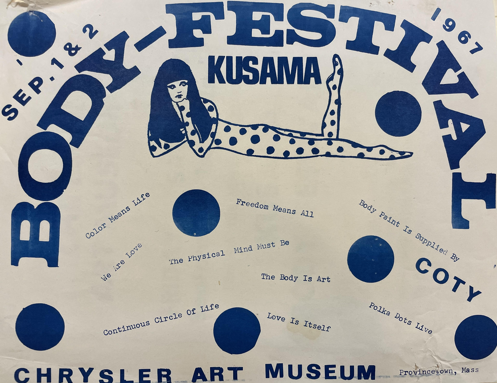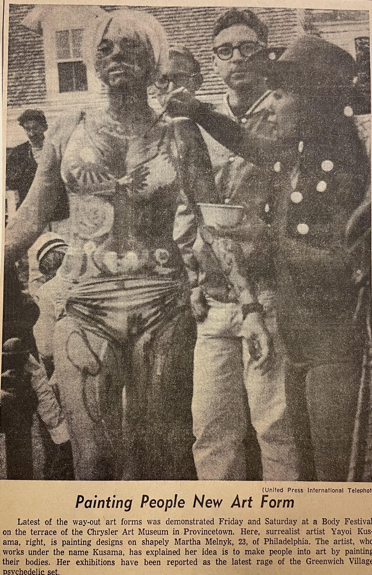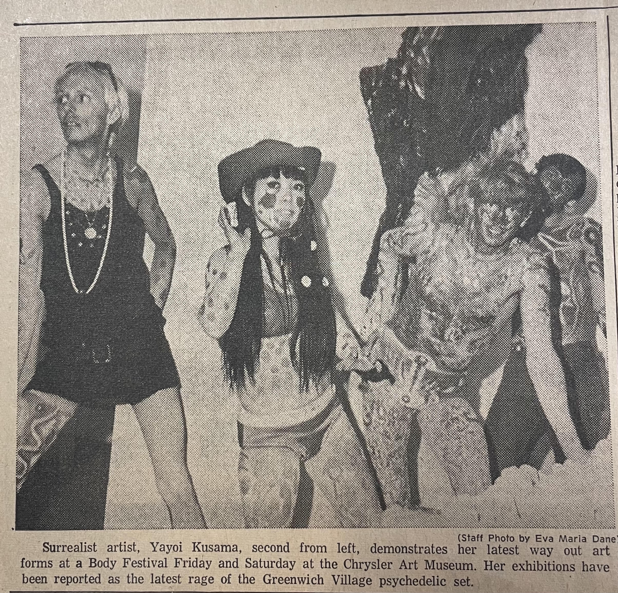- Open today, 10 am to 5 pm.
- Parking & Directions
- Free Admission
A Journey into the Walter P. Chrysler, Jr. Archives
–Kayla Falcone, 2021 Jean Outland Chrysler Library Intern
My travels while in the United States Navy inspired me to develop a deeper understanding of the world around me, so I decided to go back to school and pursue a degree in art. I am currently a senior at Virginia Wesleyan University, and I will be applying to graduate schools this winter. My summer internship at the Jean Outland Chrysler Library has allowed me to further explore my research and interests in art, collections management, history, and cultures while positively impacting my community through education.
Tucked away behind all the artwork, the Jean Outland Chrysler Library is home to thousands of references, including a wide variety of books, auction catalogues, periodicals, and archives specifically related to the objects within the Chrysler Museum. These archives include extensive ephemera files containing exhibition information, announcements, receipts, correspondences, photographs, and press clippings. The Museum’s library is the main research reference tool for exhibitions and is essential to the Chrysler’s function. The library provides the information for the Museum’s curators and educators to trace the work of an artist to its earliest beginnings before presenting the information. Those that present history and knowledge hold a lot of power, so to present the information accurately is extremely important. After all, what is more valuable than knowledge?
My summer project was to identify the contents of the Library’s Walter P. Chrysler archives and document them using digital tools. I also focused heavily on preserving them, as most of these documents are over fifty years old. If not properly preserved, archives can be damaged over time. Damage to these documents can be detrimental as these archives are a primary source for research. It is necessary to wear gloves to protect this ephemera, something as small as a paper clip can cause a chemical reaction that can ruin these precious documents. The finding aids I have created will make these archives more organized, preserved, and accessible for Museum research. Researching these documents has given me a deeper understanding of the Museum’s history and past exhibitions, along with the context of the collection and life of Walter and his wife, Jean.

While searching through the archives, I was excited to discover a body festival that my favorite artist Yayoi Kusama hosted in 1967. This attracted thousands to the Chrysler Museum. This exhibition transpired right before Walter Chrysler’s collection moved from Provincetown, Massachusetts to Norfolk. The radical art performance offended some but inspired many others, transforming how art is expressed.
In the transformational 1960s, the Equal Rights Movement, Civil Rights Movement, Gay Liberation Movement, the emergence of the mass media, and the Vietnam War were at the forefront of the changing ideas that inhabited American culture. The cultural climate was newly liberated socially, politically, and sexually. People used performance art and protests to fight against the societal constrictions.

Artists felt empowered to make art more personal by dropping traditional art mediums and methods. Artists such as Kusama opted to use themselves as a living canvas, producing a new intimate way to experience art. Performance became a favored medium for feminist artists such as Kusama because, unlike painting, it was not an artform that traditionally excluded women.
Kusama’s body festivals consisted of human bodies defined by gender, race, class, and other such socially divisive identities, which were painted in polka dots head to toe. Kusama described the polka dots as a way of transforming the body to make everything the same regardless of one’s identity that is defined by society. The artist understood the capabilities of mass media. Protesting, combined with art and nudity, brought great attention to what she was trying to express through her art.

During Yayoi Kusama’s time in America, she transformed the contemporary art world. Being a Japanese female working in America, she felt she did not receive the credit she deserved because of her gender and race. She witnessed many male artists that emulated her style become more successful than her. Because of this, she became very depressed and almost defeated, but she was able to pick herself back up; this did not stop her from creating art.
“When asked why I do what I do? Misery and pain and death are cheap. Everywhere there is war. We have forgotten the beauty of our bodies. Why are we so ashamed and contrite? We work hard for our pleasure, the naked body is all we own.”-Yayoi Kusama
While diving into the Chrysler’s collection this summer, I found Walter and Jean Chrysler’s passion for education and the artistic growth of communities extremely inspiring. I learned that they were not just art collectors, but they were educators and caused a positive transformation of the Norfolk community by providing thousands of years’ worth of knowledge. Their collection of artwork challenged existing viewpoints and ideas. If we did not challenge our values and beliefs, we would not be able to grow. This is why art education is necessary for the progression and diversity of communities. My summer internship at the Chrysler Museum of Art has given me new viewpoints and skills for my future career in education and graduate school research.

